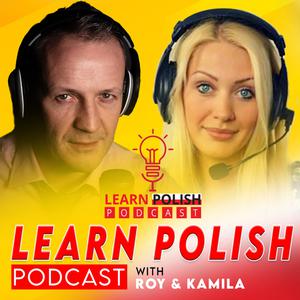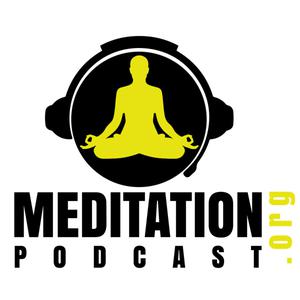
Learn Polish Podcast
Roy Coughlan
Learn Polish
- 3 minutes 2 secondsA Floral Vocabulary Journey In Polish
Immerse yourself in the richness of the Polish language as we explore floral vocabulary in this episode of Learn Polish Podcast. Host and the co-host Daniel dive into the exciting realm of flower names in Polish, turning a routine podcast episode into an enjoyable linguistic journey.
In the vibrant lexicon of flowers, you'll learn how to say with Daniel how a phone goes 'bing' in Polish! The session further introduces listeners to the Polish names for various types of prominent flowers, such as roses (Róża), lotus (Lotus soup), tulips (Tulipan), lavender (Lavenda), sunflower (Słonecznik), lilies (Lilie), daisies (Stokrotki), and daffodils (Narcissus).
As you familiarize yourself with these words, the hosts also share intriguing tidbits about the flowers. From consuming sunflower seeds to utilizing lavender to ward off pests, the narrative is sure to spark interest.
Join us in this refreshing episode as we continue to explore and appreciate the beauty of the Polish language. Share with us your favorite flower and any other flower names you'd like to learn in Polish. Find this episode and all things related to our podcast at learnpolishpodcast.com. Don't forget to leave us a thumbs up, rate us five stars, and share with your friends!
Na razie. Dziękuję bardzo i do widzenia!
9 May 2024, 10:01 pm - 3 minutes 51 secondsSupermarket Vocabulary | Episode 465
Welcome to Learn Polish Podcast episode number 465 where we aim to help you expand your vocabulary - this time with a focus on supermarket related words and phrases. In this episode, we'll cover the Polish names for common grocery items, from lemons and onions, to milk and coffee, and many more. Featuring a lively discussion with Daniel, learn about what these everyday items are called in Polish and how to ask for them.
We have compiled a list of items, Daniel will tell you what they are in Polish and you will be able to pronounce them along with our hosts. Learn how to order your groceries in a polish supermarket with phrases like "Czy możesz podać mi cytryny?" (Can you hand me lemons?) and many more. Identify what different kinds of onions, milk or oils are called or how to distinguish between a shopping trolley and a pram, both known as 'vuzek' in Polish.
Ultimately, this episode aims to help you navigate a Polish supermarket with ease and confidence. So whether you're making dinner or baking a cake, we've got you covered! Listen to this episode on learnpolishpodcast.com, YouTube and Rumble and don't forget to leave us a five-star rating and comment. We look forward to hearing from you and enjoy the episode!
8 May 2024, 6:22 am - 3 minutes 30 secondsWays to Cultivate a Good Relationship with Your Child
Welcome to episode 464 of the Learn Polish Podcast. In this episode, we delve deep into interesting conversations on how to foster an enriching relationship with your child. You can check out this episode as well as our previous ones on our website, or you can find us on YouTube and Rumble.
Today, we discuss essential factors in maintaining meaningful relationships with your child, be it a son or a daughter. Our approach primarily revolves around 'getting on your child's level'. We believe effective communication happens when each party can relate to the other's experiences and perspectives, hence the need for parental figures to be on the same level, emotionally and mentally, as their children.
We also explore becoming sportscasters or playing and engaging in shared activities, emphasizing the role that one-on-one quality time plays in strengthening bonds. This could be anything from a trip to the cinema or a visit to a theme park like Mandoria or Energialandia.
The podcast further stresses the importance of eating dinner together, highlighting the value of eye contact and conversations over meals. Spending time in the garden and even cooking together was also recommended. Bedtime bonding, such as reading together or solving math problems, is another great way we discuss to connect with your children. Sharing travel experiences, like a vacation in Estonia, was also discussed as a way to build tighter family bonds.
Thus, the episode is a comprehensive guide to practical and effective ways to foster a healthier and closer relationship with your child. Share your tips and strategies with us in the comments, because the more we learn and do together, the better!
30 April 2024, 10:01 pm - 5 minutes 11 secondsDemystifying Uno - A Fun & Engaging Card Game
Welcome to the 463rd episode of the Learn Polish Podcast, where we make learning Polish fun and engaging. This episode is dedicated to the classic card game, Uno, and how it is played in Polish culture. The hosts discuss the game mechanics, the importance of each card, the tactics, and the enjoyment they derive from it. Along the way, you'll pick up some Polish vocabulary related to gaming and more.
The hosts take listeners through the entire game, starting from drawing the seven cards, explaining the function of "Change Colour" and "Pass" cards, to the thrill of shouting "Uno" when you're down to your last card. They then describe a couple of Uno variants, such as "Dos Express" and "Uno Flip," adding more excitement and depth to the game. This episode is not just full of linguistic insights but also packed with laughs and friendly banter, making your Polish learning journey an entertaining experience.
Ending the episode on a high note, the hosts encourage listeners to share their own experiences playing Uno. Whether you're a beginner or a seasoned pro, whether you're learning Polish or just love card games, this episode is sure to fascinate you. Find all our episodes on LearnPolishPodcast.com, and don’t forget to rate us and leave your comments.
28 April 2024, 10:01 pm - 3 minutes 14 secondsThe Intriguing Game of Darts | Learn Polish Podcast
Welcome to episode 462 of the Learn Polish Podcast. Today, we delve into an interesting discussion about the game of darts ('Żutki' in Polish). This episode takes a lively turn as Daniel, clothed in a blue top, integrates with the green screen during our recording.
We discuss the nitty-gritty of the dart game, providing translations for key terms in both English and Polish. From tackling the fundamental elements of darts, like singles, doubles, and triples to the complications of scoring in the game, we cover it all. We even touch on the intricacies of the dartboard, specifically the bullseye and the outer segment of it.
Sharing our experiences and tips, we debate about the best strategies in the game. Electronic versus traditional darts, ideal throwing angles, and more - we unpack every aspect of this exciting sport. As a bonus, we even offer a spontaneous invitation to anyone who'd fancy a game of darts with us in Łódź!
We wrap up this episode by expressing gratitude and inviting suggestions from our listeners for future podcasts. If you're ready to learn some Polish through a fun and engaging game, this is an episode you don't want to miss. Enjoy it on our website, YouTube, or Rumble.
23 April 2024, 10:01 pm - 4 minutes 35 secondsPolish Basics - Learning to Greet in Polish with Daniel
Welcome to episode 461 of the Learn Polish Podcast, "Polish Basics - Learning to Greet in Polish with Daniel", where we are offering new and improved programming while maintaining our mission to help you learn Polish in a fun and interactive setting. This episode is all about greetings in Polish – a must-know topic for anyone planning a trip to Poland or interested in its language and culture.
This episode is guided by the insightful Daniel. To start off, Daniel goes over the fundamental greeting ‘dzień dobry’, equivalent to 'good day' or 'hello', which you would use regularly when meeting somebody. He explains this is a handy phrase to have at the ready, as it's culturally appropriate to use variations of the greeting depending on the time of day and formality of the situation.
We then transition into 'dobry wieczór,' which translates to 'good night' or 'good evening.' This is another common greeting to use throughout your day, particularly if you find yourself in a shop or out later in the night.
The next part of the lesson is about 'Cześć.' It has a dual meaning of ‘hello’ and ‘goodbye’ but is mostly used informally. The less common yet still essential greetings such as 'witam' (welcome) and 'do vidzénia' (goodbye) are also covered.
We wrap up the show detailing how to use various other casual greetings that are popular among youngsters. Even though greetings like 'seama’ (how’s it going) and ‘hey’ aren’t used traditionally, they are quite trendy and convey coolness. Daniel further shares some of his uses of these greetings amongst his friends.
This podcast episode is available on various platforms including Rumble and YouTube, and can be listened on Bitchute. Join us next time for another educational and enjoyable lesson on Polish vocabulary and conversation. Thank you for listening!
Find the show here https://bio.link/podcaster
22 April 2024, 3:29 pm - 8 minutes 18 secondsUnderstanding ‘Against’ in Polish
Welcome to the 460th episode of Learn Polish Podcast! Are you new to learning Polish? Begin with our older episodes, go back right to the start so you can understand and learn systematically. All our previous episodes are available on LearnPolishPodcast.com. If you want to learn from Kamilla's team, visit Polonuslodz.com.
We're also available on platforms including BitChute, YouTube, and Rumble. Don't forget to subscribe and turn on notifications to know when fresh content is out. Give us a thumbs up and drop your comments - it means a lot to us! https://bio.link/podcaster
In this episode, we dive into the Polish vocabulary associated with the English word ‘Against’. You will learn how to use 'przeciw’ and ‘wbrew’, the two Polish words that equate to 'against'. Understanding their distinctive nuances will help you compose sentences more confidently in Polish. The conversation in the podcast serves as examples on how to use these Polish terms in real, everyday conversations, such as discussions about purchasing a new car or disagreeing with someone's opinion.
Whether listening in the morning or evening, make the most of this episode regardless of time! Happy learning and do zobaczenia next time.
Words used in this Episode:
Przeciw- Against
Krem przeciw starzeniu się skóry- Anti-aging skin cream
Żel przeciw kleszczom- Anti-tick gel
Syrop przeciwkaszlowy- Antitussive syrup
Tabletka przeciwbólowa- Painkiller
Szczepionka przeciw grypie- Vaccine against flu
Wbrew- Against
Syn robi coś wbrew mamie- The son does something against his mother
Nie rób w życiu nic wbrew sobie- Don't do anything in life against your will
Wbrew sobie zostałam w tej pracy- Against myself, I stayed in this job
Wbrew opiniom golf nie jest drogim sportem- Against opinions, golf is not an expensive sport
Kupiłem nowy samochód wbrew żonie- I bought a new car against my wife
9 April 2024, 10:01 pm - 7 minutes 59 secondsEngaging Polish Idioms and Vocabulary
Welcome to a new episode of Learn Polish Podcast. In episode number 459, Roy and Kamila once again delve into the exciting world of the Polish language, this time focusing on new vocabulary and idioms. Whether you are a beginner just embarking on your Polish language journey or an advanced learner looking to push your skills to the next level, this episode offers a unique and enjoyable learning experience.
Dive into handy idioms such as ‘odnosić sukces’ (to succeed), ‘odnosić zwycięstwo’ (to win), ‘odnosić skutek' (to be successful), and learn how to use them correctly in context. They also discuss the more intense topics of accidents and injuries, with idioms such as ‘odnosić obrażenia’ (to be injured).
Amid all the learning, Roy and Kamila also share some light-hearted banter and personal stories, giving you a delightful glimpse into Polish culture, humor, and lifestyle. Stay tuned till the end for additional language learning resources and tips. If you have any suggestions or comments, don't hesitate to reach out – your input is greatly appreciated!
Visit Kamila's team at polonuslodz.com and find all the episodes on learnpolishpodcast.com. And remember, practice makes perfect, so keep learning, and until next time, dziękuję bardzo. Do widzenia!
Word used in this Episode:
Idiomy- Idioms
Odnosić, odnieść sukces- To succeed
Ten mężczyzna odniósł sukces- This man was successful
Odniosłem sukces w życiu, mam święty spokój- I have succeeded in life, I have peace of mind
Pieniądze szczęścia nie dają (ale tylko małe) - Money doesn't buy happiness (but only a little money)
Odnosić, odnieść zwycięstwo- To be victorious
Odnosić, odnieść skutki- To succeed
Odnosić, odnieść obrażenia- To be injured
7 April 2024, 10:01 pm - 6 minutes 10 secondsWelcome to Spring! An In-depth Dive into Polish Grammar
In episode number 457 of the Learn Polish Podcast, we delve into welcoming the wonderful season of spring while having a detailed discussion about the fundamental aspects of Polish grammar. We focus on cases, declination, and variations of the word 'Spring' in Polish – an insightful session for those learning the language.
We consider sentence construction using different cases in Polish, illustrating how forms change in various contexts. We talk about the implications of the word 'Wiosna' (Spring) in different cases, making the process interactive and relatable. We also have a look at common errors students might make when translating directly from English, and cover useful grammar corrections.
Breaking down the grammatical designation of 'Spring' in Polish, we show how words transform in Polish cases. We transition from the nominative case, designing sentences depicting the beauty of spring in Polish grammar, to the instrumental case, the accusative case, and beyond.
In this episode, we present not just an introduction to the season, but a deeper understanding of Polish grammar made easy. Join us in our linguistic journey while embracing the essence of spring!
Feel free to comment on whether you enjoy such grammar-focused topics and if you want more podcasts concentrating on Polish cases. Regardless of your preferences, we extend our warm greetings from Roy and Kamila and look forward to catching up soon!
Words used in this Episode of Learn Polish Podcast:
To jest wiosna- It's spring
Wiosna to moja ulubiona pora roku- Spring is my favorite season
Wiosną świeci słońce- The sun shines in spring
Lubię wiosnę- I like spring
Na wiosnę robi się cieplej- It gets warmer in spring
Myślę o wiośnie- I'm thinking about spring
Rozmawiamy o wiośnie- We're talking about spring
Nie lubię wiosny- I don't like spring
Potrzebuję wiosny - I need spring
2 April 2024, 10:01 pm - 9 minutes 4 secondsEaster Celebrations - Episode 456
Welcome to the 456th episode of Learn Polish Podcast. Today we discuss the traditions and customs surrounding the Easter holiday in Poland. As we delve into the symbolic representations of Easter from little lambs, colourful eggs to daffodils, we add an interesting angle by throwing light on how these symbols differ from those in Ireland.
In this thought-provoking episode, we also entertain the listeners with fun facts about some common Easter dishes and flowers that signify this holiday. Reminiscing about Easter in Poland and Ireland, we compare the differences and peculiarities of the holiday in both countries. For example, while the Poles follow a custom of painting eggs (pisanki), this tradition is seemingly absent in Ireland.
We also explain the Polish custom of Święconka or the blessing of the Easter basket and compare it with Irish traditions. We talk about how the variety of food and even alcohol is brought to church on Holy Saturday to be blessed and then eaten on Easter Sunday in Poland, a tradition which is not seen in Ireland.
Intriguingly, we also explore the language link between the Easter cake (Babka) and interesting phrases in Polish. We encourage you to join us on this fascinating journey to understand the rich cultural nuances of the Easter holiday in Poland and Ireland. We invite listeners to share their Easter traditions in the comments to help us broaden our understanding of these cultural celebrations.
Whether it's the charming tales of the Easter Bunny or the solemn church rituals, tune in to this podcast episode to feel the spirit of Easter from different cultural perspectives. Comment, share, and join us next week for more fascinating talks about the Polish language and culture!
Words used in this Episode of learn Polish Podcast:
Święta religijne- Religious holidays
Święta rodzinne- Family holidays
Święta państwowe- Public holidays
Wielkanoc- Easter
Zając- Hare
Królik- Rabbit
Pisanki (malowane jajka)- Easter eggs (painted eggs)
Kolor żółty- Yellow color
Żonkil- Daffodil
Żurek- Sour soup
Babka wielkanocna- Easter cake
Święconka- Easter basket
Święcić pokarm- Bless food
Czekoladowe jajka- Chocolate eggs
31 March 2024, 10:01 pm - 3 minutes 43 secondsWhat Do Children Like to Do?
Welcome to Learn Polish Podcast, episode 455, where we delve into the intriguing world of children and what they like to do. Joined by my son Daniel, we delve into various activities that engage children. From running, jumping, swinging to climbing trees and more, we uncover a refreshing perspective that children bring to the table.
Fascinated by the nuances of the Polish language? Daniel and I discuss words for various activities and states, like biegacz (to run), spragniony (thirsty), skakacze (jump), and chodzić po drzewach (like climbing a tree). Tune in to enrich your Polish vocabulary as we further delve into a variety of verbs and phrases linked to children's activities.
Additionally, we reflect on preferences that shift as kids age, discussing differences between things like trampolining, tree houses, and other forms of play. We even compare various obligations such as school and homework systems in different locations, providing a more diverse outlook.
We encourage our listeners to participate in the discussions and share their thoughts about each episode. Your feedback is immensely valuable for our program. Until our next episode, Dziękuję bardzo, do widzenia.
28 March 2024, 11:01 pm - More Episodes? Get the App
Your feedback is valuable to us. Should you encounter any bugs, glitches, lack of functionality or other problems, please email us on [email protected] or join Moon.FM Telegram Group where you can talk directly to the dev team who are happy to answer any queries.
 Speaking Podcast
Speaking Podcast
 Bootstrapping Your Dreams Show
Bootstrapping Your Dreams Show
 Not Your Teacher Podcast
Not Your Teacher Podcast
 Meditation Podcast
Meditation Podcast
 Nobody Told Me! Nuggets
Nobody Told Me! Nuggets
 Elevating Beyond with Mark Minard
Elevating Beyond with Mark Minard